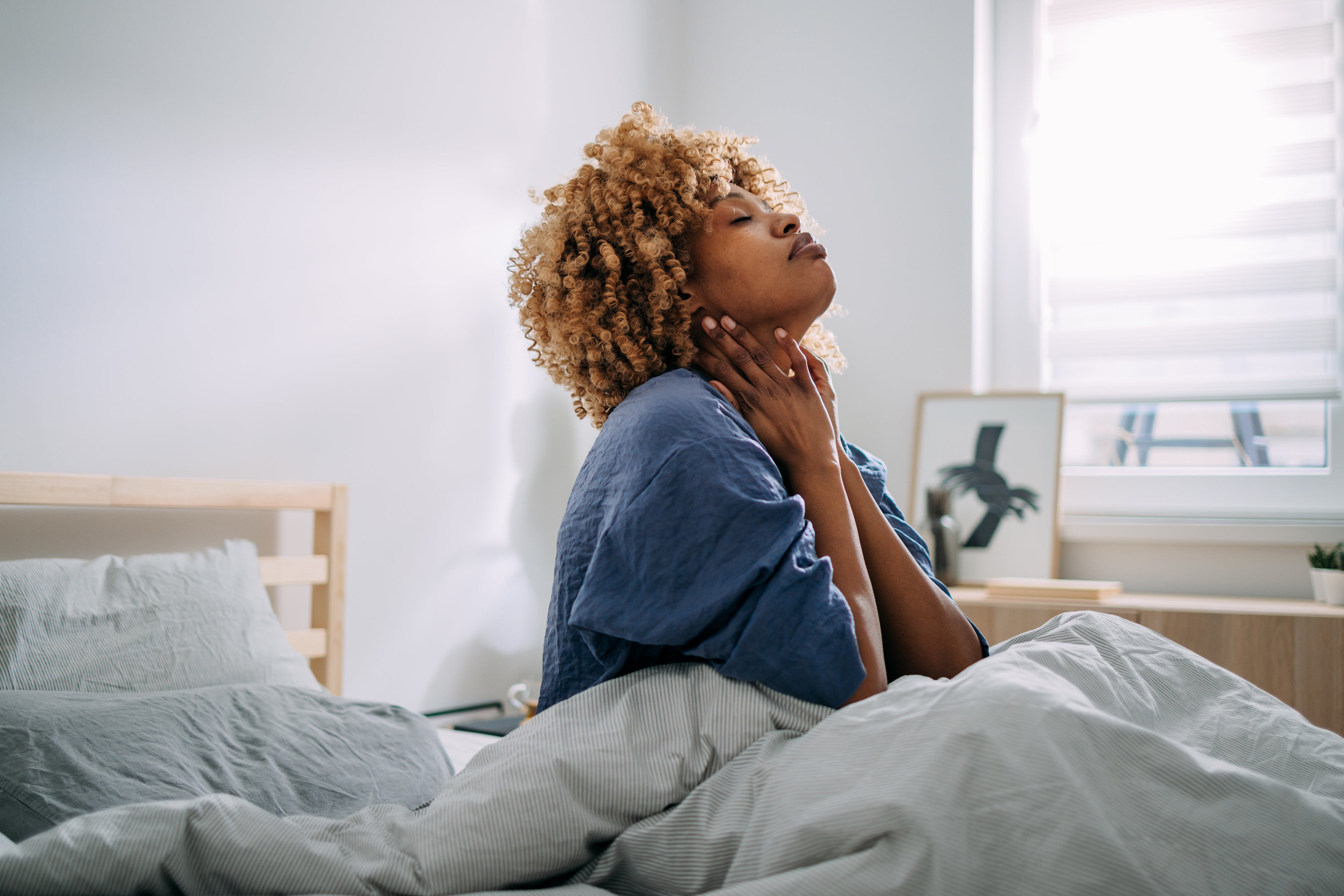Women struggling to ‘sleep and work competently’ due to HRT shortages, says MP
The UK has experienced a nationwide shortage of the drugs since 2019

Your support helps us to tell the story
From reproductive rights to climate change to Big Tech, The Independent is on the ground when the story is developing. Whether it's investigating the financials of Elon Musk's pro-Trump PAC or producing our latest documentary, 'The A Word', which shines a light on the American women fighting for reproductive rights, we know how important it is to parse out the facts from the messaging.
At such a critical moment in US history, we need reporters on the ground. Your donation allows us to keep sending journalists to speak to both sides of the story.
The Independent is trusted by Americans across the entire political spectrum. And unlike many other quality news outlets, we choose not to lock Americans out of our reporting and analysis with paywalls. We believe quality journalism should be available to everyone, paid for by those who can afford it.
Your support makes all the difference.Women are struggling to “sleep and work competently” due to a shortage of hormone replacement therapy (HRT) medication used to treat menopause symptoms, former cabinet minister Caroline Nokes has said.
The UK has been experiencing a nationwide shortage of the drugs since 2019, due to manufacturing and supply issues.
Speaking in the Commons on Thursday, Nokes, chair of the women and equalities committee, demanded a debate on the issue in an effort to resolve the matter.
She said: “Pharmacies in Romsey and Southampton North have completely run out, which leaves women of a certain age - and before my honourable friend from North Dorset makes a comment … yes, I declare an interest - without access to the oestrogen gel, which enables us to sleep and to work competently.
“Please, will the leader of the house arrange for a debate in this place following on from the brilliant debate by the right honourable lady for Swansea East to make sure that pharmacies are working hand in glove with the DHSC so that we can get the supplies that we need?”
In response, Mark Spencer, the Commons leader, said: “I can say the Department of Health and Social Care is aware of the supply issues that are affecting a limited number of HRT products. However, most HRT products, including alternatives to those experiencing supply issues, are available.
“The government is working closely with suppliers and stakeholders to resolve these issues as quickly as possible, and to ensure the NHS is informed on a regular basis.”
In response to the request, social media users responded to Ms Nokes on Twitter, expressing their frustration with the shortages.
“Women make a massive decision to go on HRT in the first place and then we have to fight to find supplies of it traipsing around pharmacies to see who has it in stock! It’s awful. Seemingly no urgency from this government,” wrote one user.
Another added: “Great work Carolyn [sic] but seems to be going on and on and we aren't getting answers to HRT supply shortage problem. A lot of women cannot do without this medication. Never a shortage with other medicines, viagra, contraception, antidepressants. We need answers NOW.”
In October, the government promised that the cost of HRT prescriptions would be “significantly reduced” in England.
Prescriptions cost £9.35 per item in England on the NHS but HRT is free in Scotland, Wales and Northern Ireland.
On Thursday, Labour MP Nick Smith asked Mr Spencer in the Commons why there was “no date yet for the HRT prescription changes in England”.
Mr Spencer replied that it was “something the health secretary is looking at, at this moment in time”.
The number of prescriptions for HRT in England has doubled in the past five years.
HRT medication comes in various forms, such as tablets, vaginal creams, skin patches and gels.
It is the most common form of treatment for symptoms of the menopause, which can include hot flashes, night sweats and mood changes.
Join our commenting forum
Join thought-provoking conversations, follow other Independent readers and see their replies
Comments